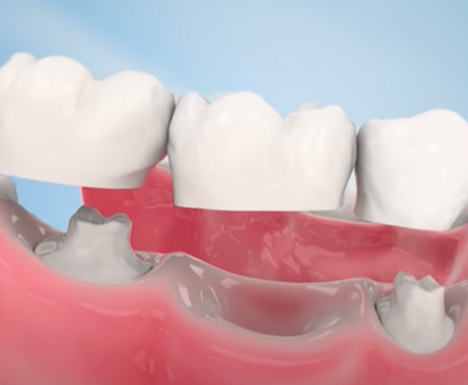Dental restorations like crowns and bridges are often used to rectify damage to teeth due to decay, trauma, and other factors. These restorative tools are popular for their durability and functionality, engineered to last a significant period if cared for appropriately. Yet, it is crucial to understand that a crown or bridge’s lifespan depends on a variety of elements, and continual maintenance is necessary to secure their long-term viability.
Typically, dental crowns and bridges are known to endure for about 5-15 years. In some cases, and with exceptional care, they might serve well for 25 years or more. Variables such as where in the mouth the restoration is situated, the material used in its construction, and the level of oral care provided by the individual can all influence its longevity. For instance, crowns and bridges placed in the front of the mouth often have a longer lifespan than those located at the back due to reduced exposure to stress and masticatory force.
The material selected for a crown or bridge considerably impacts its durability. Restorations made from porcelain fused to metal, zirconium, or e-max have a reputation for longevity. Alternatively, some patients may opt for all-ceramic or gold restorations, both of which are celebrated for their robustness and endurance.
Moreover, a patient’s oral care routine plays a vital role in preserving a crown or bridge. Effective oral hygiene practices, such as twice-daily toothbrushing, regular flossing, and using mouthwash, can help fend off plaque accumulation and lower the chances of decay. To prevent damage to these dental restorations, patients are advised to steer clear of hard and sticky foods and use a soft-bristle toothbrush for cleaning around the crown or bridge.
Routine dental check-ups are also key to ensure the long-term success of a crown or bridge. During these visits, the dentist will check the condition of the restoration and the surrounding gums and teeth for any signs of decay or infection. A professional clean might also be recommended to remove any plaque or tartar build-up that could potentially cause harm over time.
To sum it up, with varying factors at play, the lifespan of dental crowns and bridges can range anywhere from 5-25 years. To maximize their longevity, patients must be diligent in their oral care, adhere to good oral hygiene habits, and make regular appointments with their dentist. A dental professional can guide patients about the most suitable material for their crown or bridge and offer advice on the optimal care for these restorative tools.

